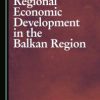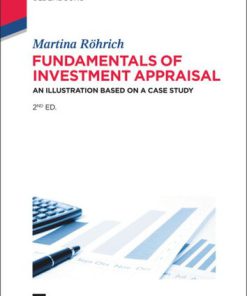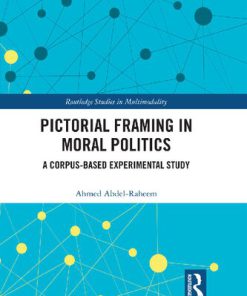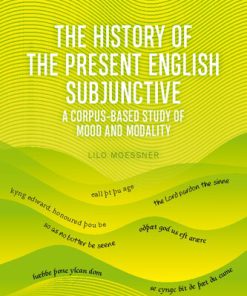A Corpus based Contrastive Study of the Appraisal Systems in English and Chinese Scientific Research Articles 1st Edition by Xu Yuchen, Yan Xuan, Su Rui, Kou Ying ISBN 9781000514254 1000514250
$50.00 Original price was: $50.00.$25.00Current price is: $25.00.
A Corpus based Contrastive Study of the Appraisal Systems in English and Chinese Scientific Research Articles 1st Edition by Xu Yuchen, Yan Xuan, Su Rui, Kou Ying- Ebook PDF Instant Download/Delivery: 9781000514254, 1000514250
Instant download Full Chapter of A Corpus based Contrastive Study of the Appraisal Systems in English and Chinese Scientific Research Articles 1st Edition after payment
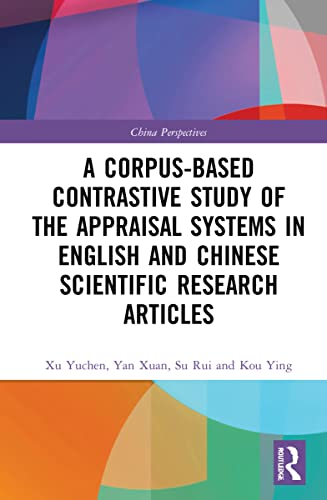
Product details:
ISBN 10: 1000514250
ISBN 13: 9781000514254
Author: Xu Yuchen, Yan Xuan, Su Rui, Kou Ying
Appraisal is the way language users express their attitude towards things, people, behaviour or ideas. In the last few decades, significant achievements have been made in Appraisal Theory research, yet little attention has been paid to appraisal in scientific texts, especially in relation to the contrast to how it is applied in English and Chinese.
This title examines the similarities and differences of Appraisal systems in English and Chinese scientific research articles. Using a self-constructed corpus of scientific research articles, the authors make cross-linguistic comparisons in terms of the quantity and distribution patterns of categories of appraisals. They creatively categorise articles into theoretical scientific research articles and applied studies and discover that for both languages, each genre can have its own favorite mode of distribution for the realization of appraisal systems. In addition, this research helps appraisal theory systems to become more explicit, specific, and more applicable for the analysis of scientific research articles.
Students and scholars of applied linguistics, comparative linguistics and corpus linguistics will find this an essential reference.
Table of contents:
1 Introduction
1.1 Research background
- 1.1.1 The origin and development of the notion of “appraisal/evaluation”
- 1.1.2 Literature review
- 1.1.3 Critique of the review
1.2 A brief introduction to the present study
- 1.2.1 The purpose of the study
- 1.2.2 The line of thought and innovative properties of the study
1.3 The structure of the book
2 Modifications of the Appraisal Theory
2.1 Introduction
2.2 Modifications of the Attitude system
- 2.2.1 Modifications of the Judgement subsystem
-
- 2.2.1.1 Modifications of Normality of Social Esteem
- 2.2.1.2 Modifications of Capacity of Social Esteem
- 2.2.1.3 Modifications of Veracity of Social Sanction
- 2.2.1.4 Modifications of Propriety of Social Sanction
- 2.2.2 Modifications of the Appreciation system
- 2.2.2.1 The border between Reaction and Affect
- 2.2.2.2 The sense of Valuation in research settings
2.3 Modifications of the Engagement system
- 2.3.1 Distinction between Counter signals and Counter appraisals in Dialogic Contraction
- 2.3.2 Unique properties of Endorse in scientific texts
- 2.3.3 Recategorization of modals in Engagement: modality value and dialogic space
- 2.3.4 Semantic tripartition: the key to the justification of “modal disharmony” and “appraisal disharmony”
-
- 2.3.4.1 The issue of “modal disharmony” and “appraisal disharmony”
- 2.3.4.2 Semantic tripartition theory
- 2.3.4.3 The explanatory power of the semantic tripartition theory
2.4 Modifications of the Graduation system
- 2.4.1 The extension of the scope of Force Intensification
2.5 Summary
Notes
3 The comparison of the appraisal systems in English and Chinese scientific research articles
3.1 Attitude
- 3.1.1 Affect
-
- 3.1.1.1 Affect in SRAs
- 3.1.1.2 Affect in English SRAs
- 3.1.1.3 Affect in Chinese SRAs
- 3.1.1.4 Comparison of Affect in English and Chinese SRAs
- 3.1.2 Judgement
- 3.1.2.1 Social Esteem
- 3.1.2.2 Social Sanction
- 3.1.3 Appreciation
- 3.1.3.1 Reaction in SRAs
- 3.1.3.2 Composition in SRAs
- 3.1.3.3 Valuation in SRAs
- 3.1.4 Summary
3.2 Engagement
- 3.2.1 Dialogic contraction
-
- 3.2.1.1 Deny
- 3.2.1.2 Counter
- 3.2.1.3 Concur
- 3.2.1.4 Endorse
- 3.2.1.5 Pronounce
- 3.2.2 Dialogic expansion
- 3.2.2.1 Entertain
- 3.2.2.2 Attribute
- 3.2.3 Summary
3.3 Graduation
- 3.3.1 Force
-
- 3.3.1.1 Intensification in SRAs
- 3.3.1.2 Quantification in SRAs
- 3.3.1.3 Comparison of Force in English and Chinese SRAs
- 3.3.2 Focus
- 3.3.2.1 Focus in SRAs
- 3.3.2.2 Comparison of Focus in English and Chinese SRAs
- 3.3.3 A summary
4 The quantitative contrast of appraisals in English and Chinese scientific research articles
4.1 Methodology
- 4.1.1 Corpus
- 4.1.2 Annotation and types of contrast
4.2 Quantitative differences in the use of appraisals between English and Chinese SRAs
- 4.2.1 Quantitative differences in the use of appraisals between CET and CCT
- 4.2.1.1 Quantitative differences in the use of Attitude appraisals
- 4.2.1.2 Quantitative differences in the use of Engagement appraisals
- 4.2.1.3 Quantitative differences in the use of Graduation Appraisals
- 4.2.2 Quantitative differences in the use of appraisals between CEA and CCA
- 4.2.2.1 Quantitative differences in the use of Attitude appraisals
- 4.2.2.2 Quantitative differences in the use of Engagement appraisals
- 4.2.2.3 Quantitative differences in the use of Graduation appraisals
- 4.2.3 Summary
4.3 Contrasts of the distribution patterns of appraisals in English and Chinese SRAs
- 4.3.1 Contrasts of the distribution patterns of appraisals in CET and CCT
- 4.3.1.1 Contrasts of the overall distribution patterns of appraisals
- 4.3.1.2 Contrasts of the distribution patterns of Attitude appraisals
- 4.3.1.3 Contrasts of the distribution patterns of Engagement appraisals
- 4.3.1.4 Contrast of the distribution patterns of Graduation appraisals
- 4.3.2 Contrasts of the distribution patterns of appraisals in CEA and CCA
- 4.3.2.1 Contrasts of the overall distribution patterns of appraisals
- 4.3.2.2 Contrasts of the distribution patterns of Attitude appraisals
- 4.3.2.3 Contrasts of the distribution patterns of Engagement appraisals
- 4.3.2.4 Contrast of the distribution patterns of Graduation appraisals
- 4.3.3 Summary
5 Conclusions
People also search:
corpus-based
corpus-based approach
a corpus based study
abstract appraisal
corpus-based studies
You may also like…
Computers - Applications & Software
Scientific Research in Information Systems A Beginner s Guide Second Edition Jan Recker
Linguistics - Linguistics
Uncategorized
Uncategorized
Uncategorized
Uncategorized
Linguistics - Linguistics


